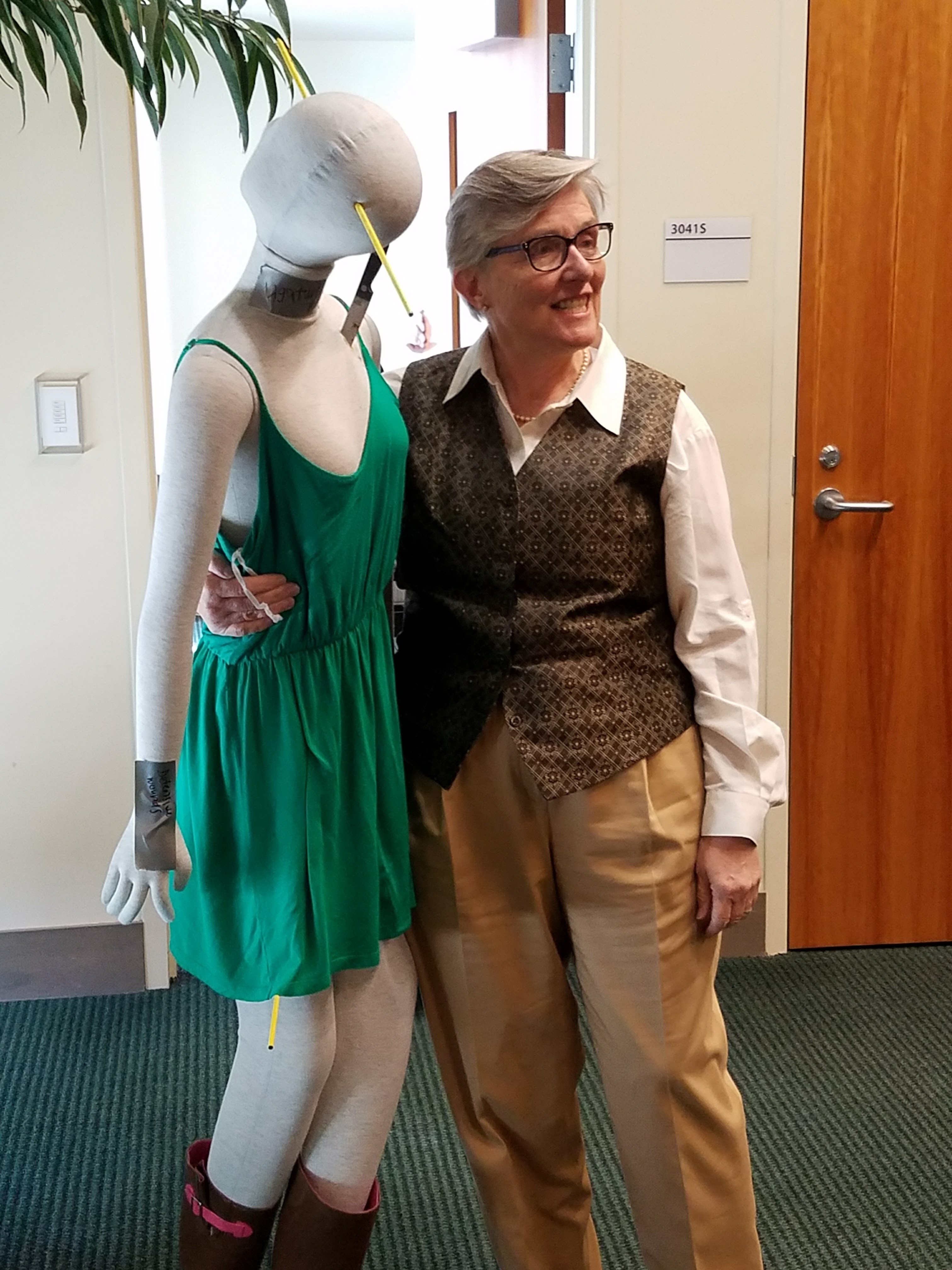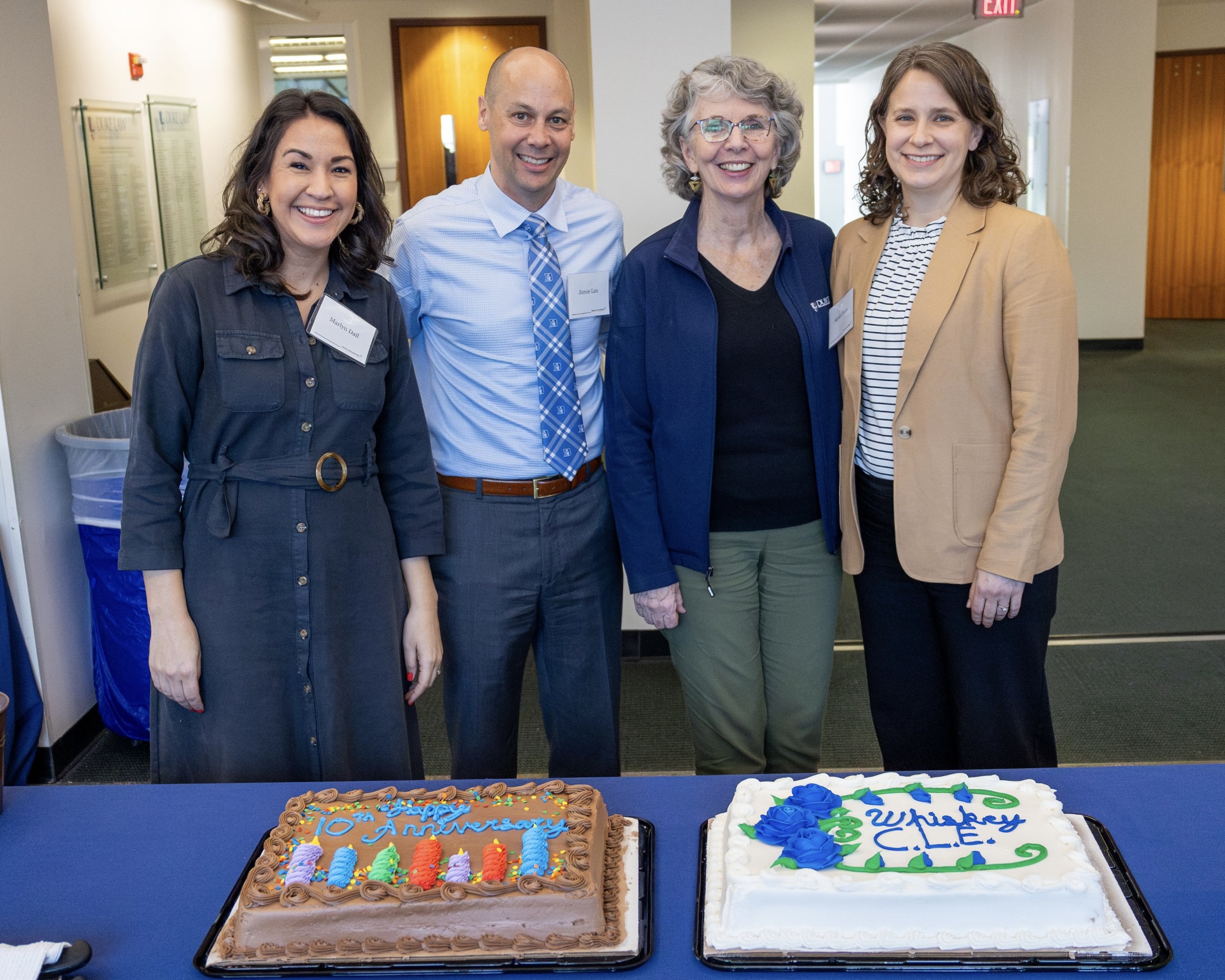Aged 10 Years: Whiskey in the Courtroom marks first decade
The popular CLE brings the latest developments in forensic science to North Carolina criminal defense attorneys

In March Duke Law School marked its tenth year hosting Whiskey in the Courtroom, a day-long symposium that brings the latest developments in forensic science to public defenders and investigators from across North Carolina.
Organized each spring with a special focus on a topic like DNA, digital, firearms, and medical evidence, the popular CLE program features experts and litigators who discuss trends in scientific evidence, limitations to this evidence, and possible legal challenges for criminal defense practitioners.
“Public defenders will tell you we are way behind on funding in certain areas compared to the state,” said Woodrena Baker-Harrell, Orange County Chief Public Defender and one of the longtime attendees known as “Whiskey Warriors.”
“Programs like Whiskey supplement the information we have and let us know what’s out there, so we can try to get additional funding to keep up with the state’s well-oiled machine.”
Whiskey’s founders — Clinical Professor Jamie Lau ’09, Charles S. Rhyne Clinical Professor Emerita Theresa Newman ’88, and Sarah Rackley Olson of the North Carolina Office of Indigent Defense Services — never intended to keep the name after its first year. But the inaugural symposium was called “Whiskey in the Courtroom” based on the keynote presentation by that title and it stuck. Attendees immediately started referring to “the whiskey conference” and there was no turning back.
In fact, Whiskey Warriors are so fond of the name that a well-intentioned suggestion this year to remove the alcohol reference was promptly suppressed.
“I'm not going to say there was a full-on ‘Whiskey Rebellion,’ but people were pretty adamant that the name shouldn't change,” Lau said. “So we took our marching orders from the attendees and decided to keep the name.”
Presenters include experts from a broad range of disciplines such as fire investigation, toxicology, molecular genetics, firearms, fingerprint analysis, psychology, and artificial intelligence. Accompanied by a dummy “victim,” forensic scientist Marilyn Miller has presented twice on crime scene analysis and reconstruction, and a veterinary entomologist has discussed how to use insect colonies to determine time of death.
In 2017, Charlotte attorney David Rudolf (of Netflix’s “The Staircase” fame) discussed successfully defending a case based on what occurred in a three-second window of time, and in 2018, Laura Nirider, appellate attorney for Brendan Dassey of Netflix’s “Making a Murderer,” spoke about litigating false or coerced confession claims.
“I learn something new every time I go,” said Anthony Monaghan of the Mecklenburg Defenders office. “The combination of experts in their fields and attorneys and investigators talking about how they have defended particular clients is beneficial to everybody. No one’s going to understand all these areas in just one day, but it gives you a starting point to know what you don’t know.”
Mecklenburg defender Samantha Grill ’12 found value in a session on forensic genetic genealogy, a relatively new technique that has been used to identify suspects by connecting DNA from crime scenes with family members who voluntarily upload samples to consumer DNA databases.
“I have a special interest in DNA, and I found the presentation to be very engaging and very informative. It led me to then go on a deep dive myself in that area, even though it hasn’t come up in any of my cases yet,” she said.
From its first keynote presentation, Whiskey in the Courtroom was designed to bring in knowledge and trends from outside the legal context to give attorneys fresh perspectives on their defense strategies. In that presentation, Newman and neuroscientist Pate Skene ’14 compared modern medical research on the effects of sleep deprivation with alcohol impairment and referenced an 1895 ruling, State v. Jenkins, in which a mistrial was declared due to jury misconduct: jurors were drinking whiskey during deliberations and were under its influence when they rendered a verdict.
“Sleep deprivation was being studied for the medical discipline and we thought, how can we apply that to defend our clients or in legal decision-making, generally, in the criminal arena? How can those experts help us understand what happened here?” Newman said.
“That's always been our goal – to train attorneys in not just well-known developments that are applied in the context in which we work, but what's developing in other disciplines and how we can import that into our own.”
That keeps the Whiskey Warriors coming back year after year, along with the opportunity for fellowship with other members of the criminal defense bar.
“It’s a broad mix of investigators, attorneys, and other people involved in the defense of clients,” Monaghan said. “It’s rare that the room isn’t full, and it’s nice to see so many people who want to take a day out of their schedule to come to Duke Law School.”
“Each year it’s provided great information, and new information that is relevant to our practice,” Baker-Harrell said.
“We look forward to it every year. We like to tell the judges, ‘We’re going to have whiskey on Friday.’”
